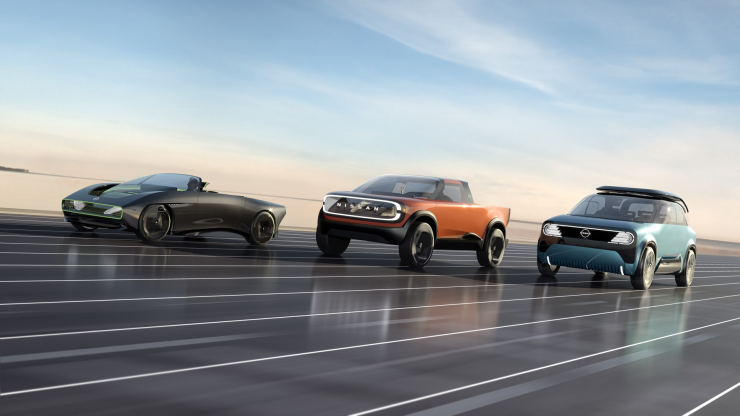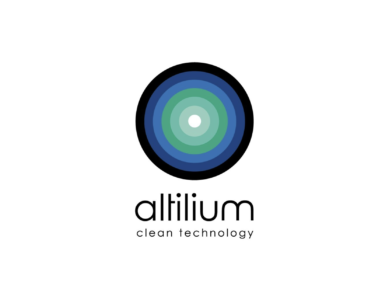Nissan announces proprietary solid state batteries, to bring down the price of battery packs to $75 per kWh by 2028.
Japan-based automakers were the ones to popularize electric and hybrid vehicles. Toyota’s TM Prius launched in 1997 was followed by Honda’s HMC Insight in 1999. Nissan NSANY raised the electrification game with Nissan Leaf in 2010, the first fully-electric car designed for the mass market.
However, once viewed as electric vehicle (EV) visionaries, Japan-based automakers gradually lost their dominance in the EV industry, with carmakers in the United States, Europe and China sprinting past their Japanese counterparts.
Battery-powered vehicle sales in Japan have been trailing behind, with the nation’s EV market share sitting below 0.6% in 2020, per Statista data. While the country is spearheading the gasoline-electric hybrids, it has a lot of catching up to do when it comes to fully electric vehicles.
🔥 What about we co-host a webinar? Let's educate, captivate, and convert the battery economy!
Batteries News is the global go-to online magazine for the battery industry, we can help you host impactful webinars that become a global reference on your topic and are an evergreen source of leads. Click here to request more details
With all major nations racing toward an all-electric future, the Land of the Rising Sun is gradually accelerating its EV strategy. The country targets to phase out petrol and diesel cars by mid-2030s.
As Japan readies for an electrified future, the nation’s automotive heavyweights are seemingly shedding their inhibitions and getting serious to transition to all-electric transportation.
Let’s take a closer look at how Japan’s Big 3 auto giants— Toyota, Honda and Nissan—are positioned in the EV space. While Toyota and Nissan carry a Zacks Rank #3 (Hold), Honda is #5 Ranked (Strong Sell).
Nissan Ambition 2030 Vision
NSANY unveiled Nissan Ambition 2030, the firm’s long-term vision for driving the new age of electrification, and empowering mobility and beyond. To this end, the company plans to invest around $17.6 billion over the next five years to accelerate the electrification of its product lineup. It intends to launch 23 new electrified models by the decade-end, 15 of which would be fully electric.
The auto giant is aiming at a 50% electrification mix for its Nissan and Infiniti brands by 2030. Nissan expects EVs to account for nearly 70% of its U.S. sales by 2040.
On the battery front, the auto biggie plans to introduce its proprietary all-solid-state batteries (ASSB) by fiscal 2028, with a pilot plant in Yokohama to be readied as early as fiscal 2024. ASSB is expected to bring down the price of battery packs to $75 per kWh by 2028 and eventually to $65 per kWh to achieve cost parity between EV and gasoline cars.
Nissan also showed off a few EV concept cars, the most striking being a small pickup truck called Surf-Out, besides a boxy crossover ”Hang-Out,” a compact SUV ”Chill-Out” and a convertible sports car “Max-Out”.
Currently, NSANY has just one EV offering on market — Nissan Leaf hatchback. The upcoming electric offering Nissan Ariya will go on sale next year with the base price of $47,125.
Toyota’s Big Bet on Battery Tech
In September, TM earmarked more than $13.5 billion for investment in battery development and production through 2030, which includes a $3.4 billion outlay in battery technology in the United States.
The project is expected to help Toyota advance its climate goals to achieve carbon neutrality in a sustainable manner and usher in an era of more affordable EVs for U.S. consumers.
The automaker plans to build about 70 hybrid or electric models by 2025, of which 15 will be fully electric. It targets to sell 8 million partially or fully electrified vehicles by 2030, of which about 2 million will be battery-powered cars and fuel-cell vehicles, while the other 6 million will be gasoline-electric hybrids or plug-in hybrids.
To cater to the surging demand for clean energy vehicles in the United States, Toyota envisions EVs to account for nearly 70% of its U.S. sales by 2030, up from almost 25% currently. The company expects it will sell as many as 1.8 million electrified vehicles in the United States by 2030, including the zero-emission models.
The auto giant intends to slash the cost of its batteries by 30-50%. It plans to optimize the power consumption of these batteries by 30%, starting with its first all-electric SUV— Toyota bZ4X—unveiled last month, where “bZ” stands for “beyond zero,” highlighting Toyota’s goal to become carbon neutral by 2050.
Honda’s Massive R&D Outlay for Electrification
In a bid to keep up with the global EV race, Honda announced in April its plans to invest $46 billion in research and development initiatives, including electrification, over the next six years. It targets EVs to account for 40% of its sales in North America and China by the decade end, which would further increase to 80% by 2035. For Japan, the company aims EVs to constitute 20% of sales by 2020 and 80% by 2035.
In North America, Honda will collaborate with General Motors to develop two large-sized EV models. The Honda Prologue SUV will be the first volume BEV for North America. The company will unveil an all-electric Acura SUV in 2024. Based on Honda’s strategic partnership with General Motors, both Honda Prologue SUV and Acura SUV will utilize the latter’s Ultium-branded EV architecture and battery system.
Last month, Honda laid out its bold EV targets for China, where the company plans to sell only electrified vehicles in China beginning 2030. In 2022, the firm will launch a new electric vehicle brand in China called e:N Series. Under this brand, Honda will roll out 10 new EVs in five years in collaboration with its partners, GAC and Dongfeng Motor.
The first set of e:N Series models, e:NS1and e:NP1, will hit the roads in spring 2022. New EV production plants are set to be established at both GAC Honda and Dongfeng Honda, with the commencement of production expected in 2024.
Now is the time to get in on a young industry primed to skyrocket from $13.5 billion in 2021 to an expected $70.6 billion by 2028.
After a clean sweep of 6 election referendums in 5 states, pot is now legal in 36 states plus D.C. Federal legalization is expected soon and that could kick start an even greater bonanza for investors. Zacks Investment Research has recently closed pot stocks that have shot up as high as +147.0%.
You’re invited to immediately check out Zacks’ Marijuana Moneymakers: An Investor’s Guide. It features a timely Watch List of pot stocks and ETFs with exceptional growth potential.
READ the latest Batteries News shaping the battery market
Electric Dreams of NSANY, TM & HMC in the Spotlight, November 30, 2021








